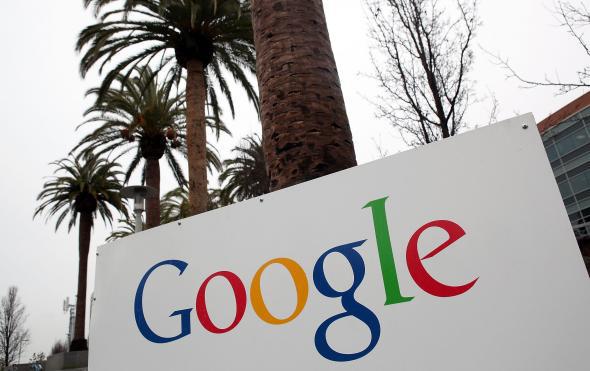On Thursday, the Wall Street Journal published an explosive story on a Federal Trade Commission report detailing how Google manipulated its search results to benefit its own services. In most other contexts, this kind of monopoly-building practice would probably put Google on the losing end of an antitrust lawsuit. But since at least 2003, the search-engine giant has argued that the First Amendment protects its right to alter its search results any way it pleases. Thursday’s disclosure doesn’t just validate Google’s free-speech argument—it actually strengthens it.
As I explained last year, Google’s constitutional defense here is pretty simple. The company claims that by designing a complex algorithm that turns gigabytes of information into a list of links, it is exercising something akin to editorial control. Just as newspaper editors choose which stories to publish, and encyclopedia editors select which entries to include, Google decides what information to present to its users, and how that information should be presented. Organizing and publishing information about facts and opinions is core free-speech activity that usually merits full First Amendment protection. According to Google, there’s no reason for that constitutional protection to collapse merely because the information is being presented on a search engine.
When I described this theory in November, I noted that it had one glaring weakness. Google has consistently asserted that it does not manipulate its results to favor certain websites, leaving the work of organizing links up to its algorithm. If this were true, Google would barely be asserting any kind of true editorial control over its results, rendering the company’s claims to protected expression rather dubious. Thursday’s revelation, however, makes this concern a moot point. The fact that Google did tweak its results to favor certain links proves that the company really was exercising editorial judgment, and thus was engaging in a form of free speech. In other words, the more Google violated core antitrust principles, the more protected its speech became.
This incentive system is more than a little perverse. But it’s also probably a necessary cost of freedom of expression on the Internet. If the government could interfere with Google’s search results, it would also hold the power to meddle with review sites like Yelp—or, in the extreme, the editorial judgment of individual webmasters who curate information and present it to readers in a customized order. The Supreme Court barred this state intrusion into free expression in print form 41 years ago. There’s really no reason the rules should be different just because the marketplace of ideas has relocated to the Internet.
